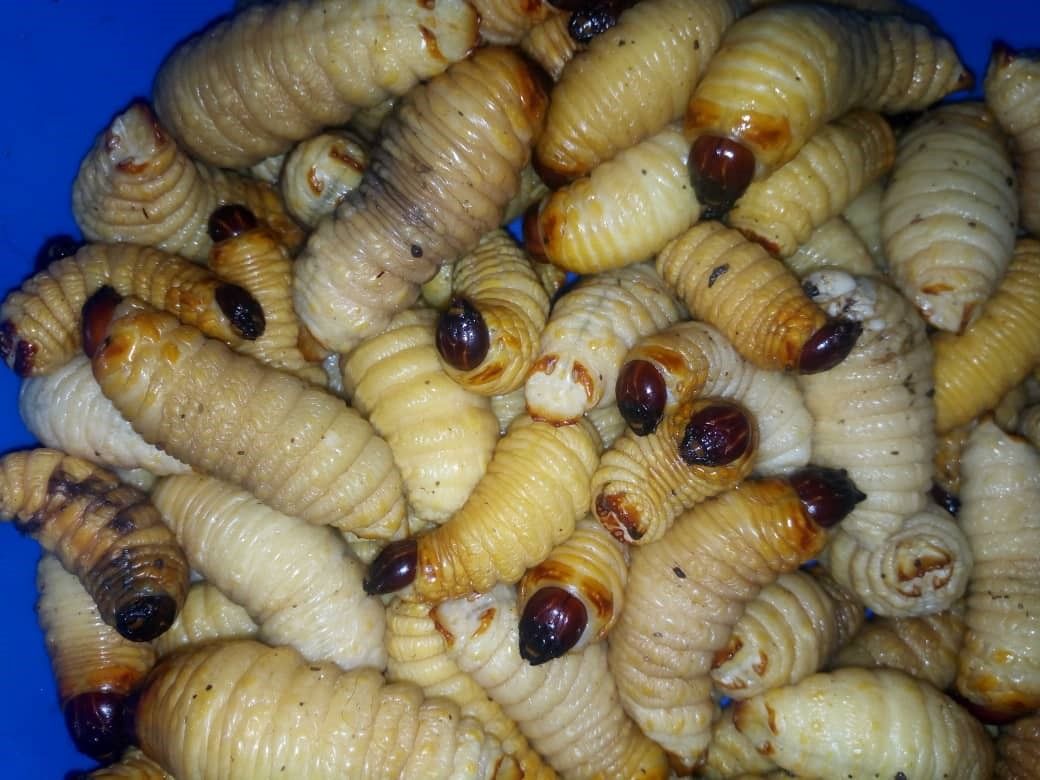
October 22, 2020, by Rob Ounsworth
Power snack: insects and innovation in rural Africa
A project aims to support rural communities in Nigeria to generate income from sustainable, nutritious insect-based snacks. The next step is creating innovative supply chains to allow production across Africa and beyond. Dr Jo Gould explains
My interests lie in understanding the processing of sustainable ingredients. I am the technical lead for the Sustainable insect protein snacks (SIPS) project, funded through Agri-tech 8, Innovate UK.
The partners in the project are Federal Polytechnic, Oko (FPO) (Nigeria) and two SMEs – Biopolymer Solutions Ltd (BSL) and Real World Business Solutions (RWBS). The roots of this consortium are firmly in the University of Nottingham – lead at FPO Dr Mary Okpala is a Food Science alumnus; BSL founders are our Emeritus Professors Sandra Hill and John Mitchell and RWBS Director John Beech is also a Food Science alumnus.
The project aims to investigate the feasibility of producing a shelf-stable, high-protein snack based on starch and materials from palm weevils, mealworm larvae and black crickets, which are indigenous to Nigeria. These are manufactured using an innovative process (patent pending) that utilises conventional equipment. The product has the potential to empower rural communities to produce, eat and sell a safe, easy to manufacture, nutritious and sustainable snack that can replace a meal.
By the end of our first quarter, January 2020, the consortium had completed an exploration of materials and further evaluation of the sustainability and nutrition led us to select and start to source seven starch rich materials and four insect materials for composition, microbial and functional analysis – and then COVID-19 happened.
Lockdown prevented experimentation not only for the University but for the SMEs that pay for access to our facilities. The consortium responded quickly with a full critique of our project workplan and identified objectives that could be achieved by hitting the literature and reviewing the risks involved with insect consumption and processing steps to minimise risks. By the time the labs re-opened we had two reports and a prioritised experimental design for the remaining month of our researcher’s contract. Other partners led on objectives that ranged from initial starch processing trials in home kitchens, designing processing equipment modification, to creating a network of partners in Nigeria.
The UK team has returned to experimentation with full analysis of the ingredients completed and prototype products developed, with FPO able soon to conduct initial sensory trials. And we are not stopping – the consortium is in the final days of preparing a proposal for Agri-tech 10, which aims to develop an innovative supply chain for our prototype to enable the production in rural low income and commercial situations in Africa and beyond.
If funded, the University will act as technical lead and the multidisciplinary team will develop testing regimes to ensure the safety, nutrition and sustainability of these underutilised, minimally processed ingredients.
However, as we prepare to submit the application, it will be with a heavy heart due to the recent passing of Emeritus Professor John Mitchell, whose contribution to Food Science at Nottingham is hard to put into words. As the founding editor of Carbohydrates Polymers and author of over 200 peer reviewed articles, he was acknowledged as a world-leading expert on hydrocolloids. Perhaps the best way we can honour him and uphold his legacy is to continue to understand how these underutilised ingredients respond to processing, for which, if funded, this grant will allow us to do.
Dr Jo Gould is an Assistant Professor in Food Science in the School of Biosciences
No comments yet, fill out a comment to be the first




Leave a Reply